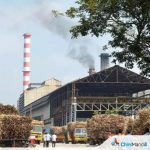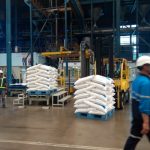Suntory Holdings has launched a three-year project aimed at reducing carbon emissions in sugarcane farming in Thailand. This initiative is a collaboration with the VIVE Programme, a voluntary sustainability effort focusing on ingredient and energy supply chains, along with Kaset Thai International Sugar Corporation Public (KTIS), one of Thailand’s leading sugar producers, reported FoodBev Media.
Suntory is sponsoring a pilot program in Thailand to implement interventions for low-carbon farming, guided by regenerative agricultural practices identified by experts from KTIS and VIVE. The goal of the program is to assist KTIS and its farms in developing scalable, low-carbon sugarcane production methods, aligning with Suntory Group’s objective to cut greenhouse gas emissions by 30% across its entire value chain by 2030.
Brian Golden, Senior General Manager of Global Supply Solutions at Suntory Holdings, emphasized the company’s dedication to enhancing resilience and minimizing emissions in its agricultural supply chains. He highlighted collaborative efforts with partners to pioneer innovative and sustainable programs in the agricultural sector, expressing enthusiasm for launching this new initiative with VIVE and KTIS. Golden underscored the initiative’s use of regenerative agricultural principles and real-world insights to drive transformative advancements towards a more sustainable future.
Sylvester Bamkole, Sustainability Associate at VIVE, noted growing interest among ingredient and energy supply chain participants in leveraging insights to implement, measure, and verify key decarbonization interventions globally. He highlighted the VIVE Climate Action program’s core mission to deliver comprehensive, science-based decarbonization solutions across raw material supply chains, emphasizing the importance of creating carbon transparency, identifying opportunities, and forming critical partnerships for carbon reduction. Bamkole expressed excitement about collaborating with Suntory and KTIS on a commercially viable pathway for carbon reductions and continuous improvement.
Parphan Siriviriyakul, CEO of KTIS, expressed satisfaction with KTIS’s participation in the project, aligned with their commitment to becoming a low-carbon organization for sustainable growth. He emphasized that involvement in this low-carbon agriculture initiative reinforces KTIS’s dedication to sustainable sugarcane farming and responsible environmental stewardship.












